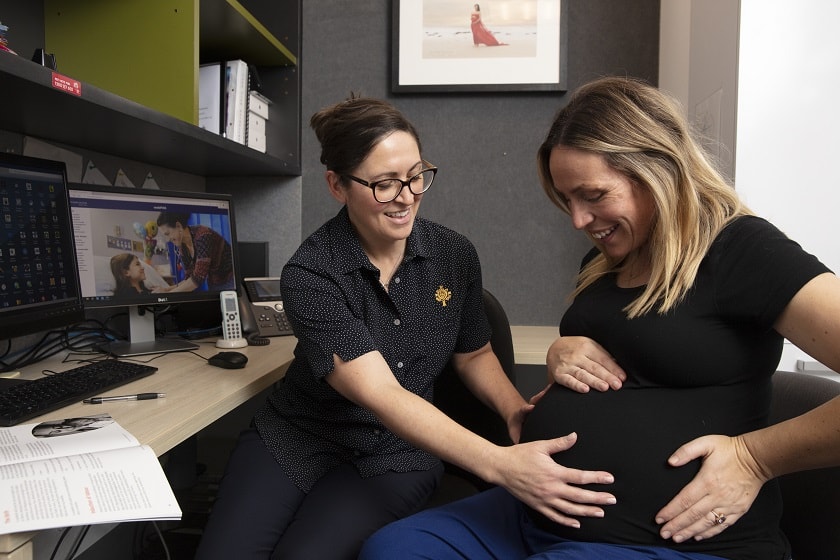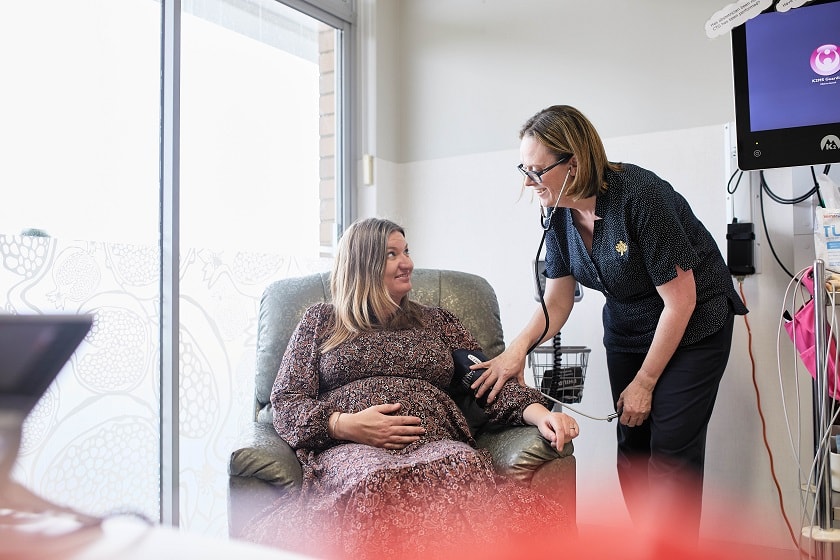What is gestational diabetes?
Gestational diabetes, or gestational diabetes mellitus, is a temporary form of diabetes that develops during pregnancy and generally disappears after the baby is born.
It typically develops between 24 and 28 weeks of pregnancy, as the body is unable to adapt to the changing amounts of pregnancy hormones while the baby and placenta grow. The blood glucose level of the woman is raised above normal ranges for during pregnancy, which is known as hyperglycaemia.
It is not the mother’s fault that gestational diabetes occurs, and the baby will not be born with diabetes.
During 2020-2021 in Australia, more than one in six women (17.9 per cent) were diagnosed with gestational diabetes. As of March 2023, 39 per cent of women registered with gestational diabetes required insulin to manage their diabetes.
Placenta, part of the cause
Gestational diabetes develops when a hormone called insulin, produced by the mother’s pancreas, becomes less effective in keeping the blood glucose levels within a normal range.
This occurs because the placental hormones block the action of the mother’s insulin - this is known as insulin resistance.
What are the risk factors?
Some women are more at risk of developing gestational diabetes which can be due to:
- Having a family history of type 2 diabetes.
- Being older than 40 years of age.
- Being above the recommended healthy weight range.
- Previous history of gestational diabetes.
- Polycystic Ovarian Syndrome (PCOS).
- Certain ethnic backgrounds, including Aboriginal or Torres Strait Islander peoples, Maori, African, South Asian, Southeast Asian, Middle Eastern, and South American.
What kind of screening is there?
It is recommended that all pregnant women be screened for gestational diabetes at 24 to 28 weeks’ gestation with the oral glucose tolerance test. Women with risk factors as listed above, may be screened earlier.
Preparation for this blood test requires you to fast overnight and not consume anything other than water for at least eight hours and no more than 12 hours. Try to minimise any high-level physical activity on the morning of the test.
An obstetrician or GP will guide women and discuss the right time to have the test.
Low symptoms, but still risk - why it’s important to manage gestational diabetes.
Generally, women with gestational diabetes do not experience any symptoms, but having it has associated risks for both mum and baby.
It is important to manage gestational diabetes to minimise risks for both mum and baby:
- Early delivery or caesarean section
- Large for gestational age baby
- Birth trauma
- Baby may need transfer to special care nursery to closely monitor baby’s blood glucose levels post birth.
Ways to manage gestational diabetes
How do you manage gestational diabetes if you’ve been diagnosed? Our tips include:
- A healthy meal plan with correct portion sizes
- Self-monitoring your blood glucose levels. The blood glucose targets for gestational diabetes are <5.1 fasting in the morning and <6.7 two hours after each meal (before eating any snacks).
- Exercise within your capabilities, always be guided by your GP or obstetrician and if it is recommended you stop exercising, adhere to those recommendations.
- May need insulin treatment to improve blood glucose levels in normal range for pregnancy.
- Consider hand expressing colostrum from 36 weeks as guided by your midwife or obstetrician.
- Skin-to-skin with baby within the first hour of birth and an early feed for your baby.
Thanks to St John of God Murdoch Hospital Midwife Julie Dawson who co-authored this blog.
References
Nankervis A, McIntyre, HD, Moses R, et al. Australian Diabetes In Pregnancy Society Consensus Guidelines for the Testing and Diagnosis of Hyperglycaemia in Pregnancy in Australia and New Zealand.
https://www.adips.org/educational-resources.asp
www.aihw.gov.au/reports/diabetes
https://www.ndss.com.au/about-diabetes/diabetes-facts-and-figures/diabetes-data-snapshots/








